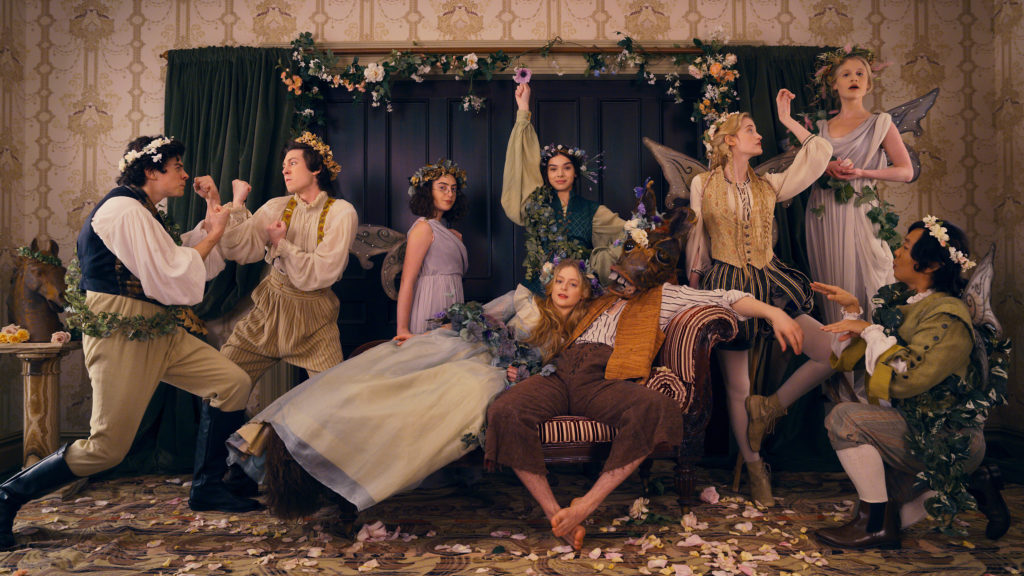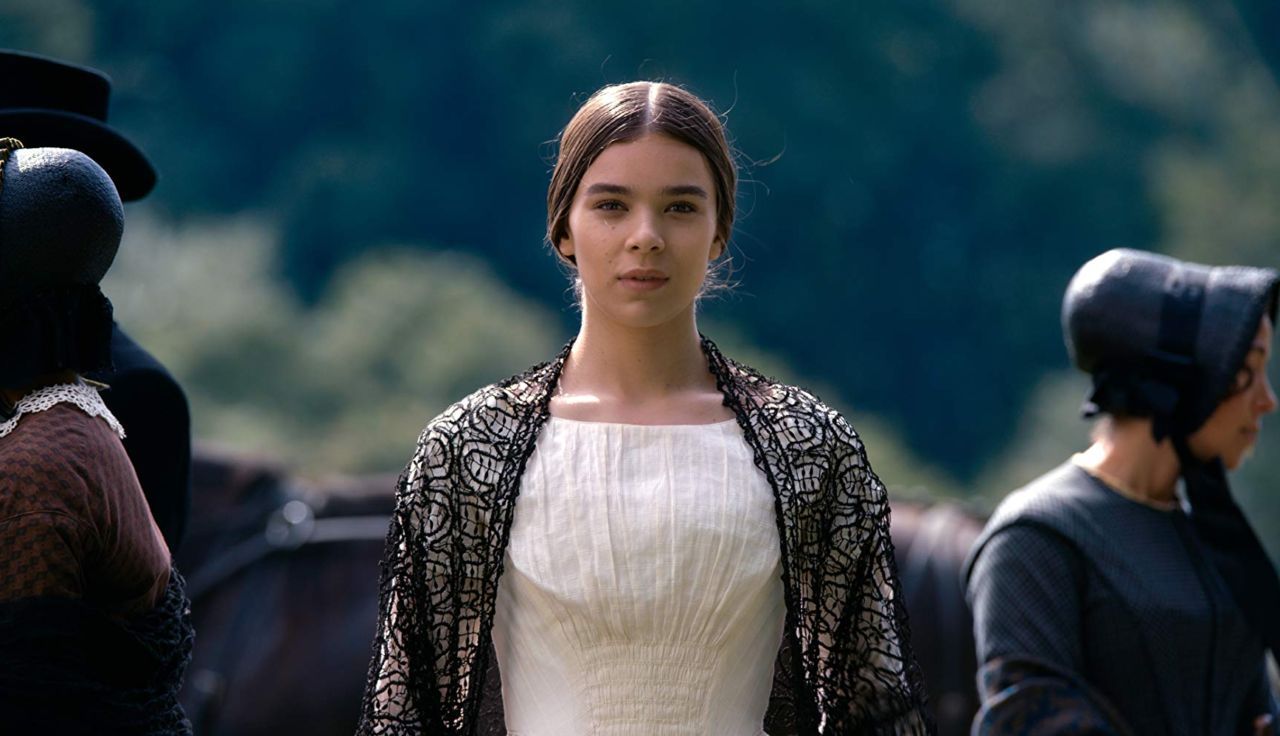I’ll give Season One of “Dickinson” credit. It took me until Episode Three to realize I shouldn’t take it seriously in the slightest. The revelation that I wasn’t watching a CW teen drama entering its eighth season and slowly running out of ideas helped put things into context.
If you jump into this show with the notion that it’s a revelatory but modern take on Emily Dickinson, you’re going to have a bad time. The debut season of Apple TV+’s original series is only marginally concerned with the actual history and life of our title character. Think less Mozart from “Amadeus” and more a really bad attempt at “Drunk History.”
It’s a parody where you could almost see Emily Dickinson doing and saying some of the things they say in the show. The problem is that they based a show around Emily Dickinson. A person who famously, whether from actual contentment or as the show suggests, being pushed to the limits by the people around her, never left her hometown if she could avoid it.
The caricature of a rebellious teen obsessed with death, the show writers summoned forth from her poetry feels almost right, but so many of the plot lines and things the characters do are dispelled with a quick google search.
It feels too modern, with the modern slang and soundtrack pressing down on the problem. The amount of times I caught myself thinking “Emily would never” about a woman I have acquainted myself with almost entirely through Wikipedia is too high.
But even if you can disregard everything, if anything, you know about Emily Dickinson, the show is still an endurance watch. It’s due in part to the show’s focus on its title character who is simply the worst.
Early on in the show, Emily’s mother, played by Jane Krakowski (“The Unbreakable Kimmy Schmidt,” “30 Rock”) calls her out for caring about only herself. It’s supposed to be a sympathetic moment, after all, Emily’s only crime up until that point is trying to publish a poem. However, she would spend the next seven episodes proving her mother’s point.
This iteration of Emily Dickinson cares only about herself and her writing, often going out of her way to get what she wants despite what anyone else tells her.
When it comes to her attempts to get published, it feels admirable. A young woman railing against the injustice of the world. Those scenes are few and far between.
More often than not, Emily’s actions are selfish and childish with her hardly getting called out on it. If she does gain some sense of humility in an episode, it is almost always followed by examples in the next episode that show she’s learned absolutely nothing.

The show’s solution to having such an unlikable main character is to try and make everyone else a jerk. They often ignore Emily’s complaints or just straight out insult her by hitting her with that old 19th-century mentality, reminding her she’s just a woman. This just makes the modern music and terminology feel that more out of place.
The brief glances we get into the lives of the side characters reveal much more interesting and likable characters. They often have legitimate grievances with Emily, which Emily ignores far more quickly than they ignore hers. Her brother Austin is annoyed that his sister keeps seducing his fiancé Jane. Her younger sister Vinnie hates that her parents focus all their attention on Emily, which is keeping her from getting married.
Even her father, who serves as a main antagonist of sorts, is in every other scene a loving doting man, who bends to Emily’s each and every wish. At one point he diverts the planning of a railroad just to preserve a tree that Emily likes to sit under. However, the show bends over backward to display his absolute hatred of the idea of Emily being published.
We only get brief snippets into these characters’ narratives but they’re always a nice reprieve from whatever Emily is doing and something I wished the show explored more. I wanted to see more of her mother’s struggles to adapt to a housekeeper taking over her duties, her sister’s lackluster love life when falling for the local playboy. Even her brother and Jane’s seemingly genuine budding romance whenever Emily isn’t involved.
The show even shines brighter when it attempts to tackle other writers, where they have more material to work with. The narcissistic poser Henry David Thoreau who wants everyone to think he’s an outdoorsman made me honestly laugh. As did their version of Louisa May-Alcott who’s obsessed with how she’ll monetize every story she writes.
By the end, the season just gives up on itself. It gives up trying to give Emily character development. It gives up trying to explain her father’s opposition to her writing. And it funnels in enough historical inaccuracy to make any fan of the famed author groan and shake their head.
You can watch Season 1 and 2 of “Dickinson” on Apple TV+.
Joshua Fadare
Reporter


